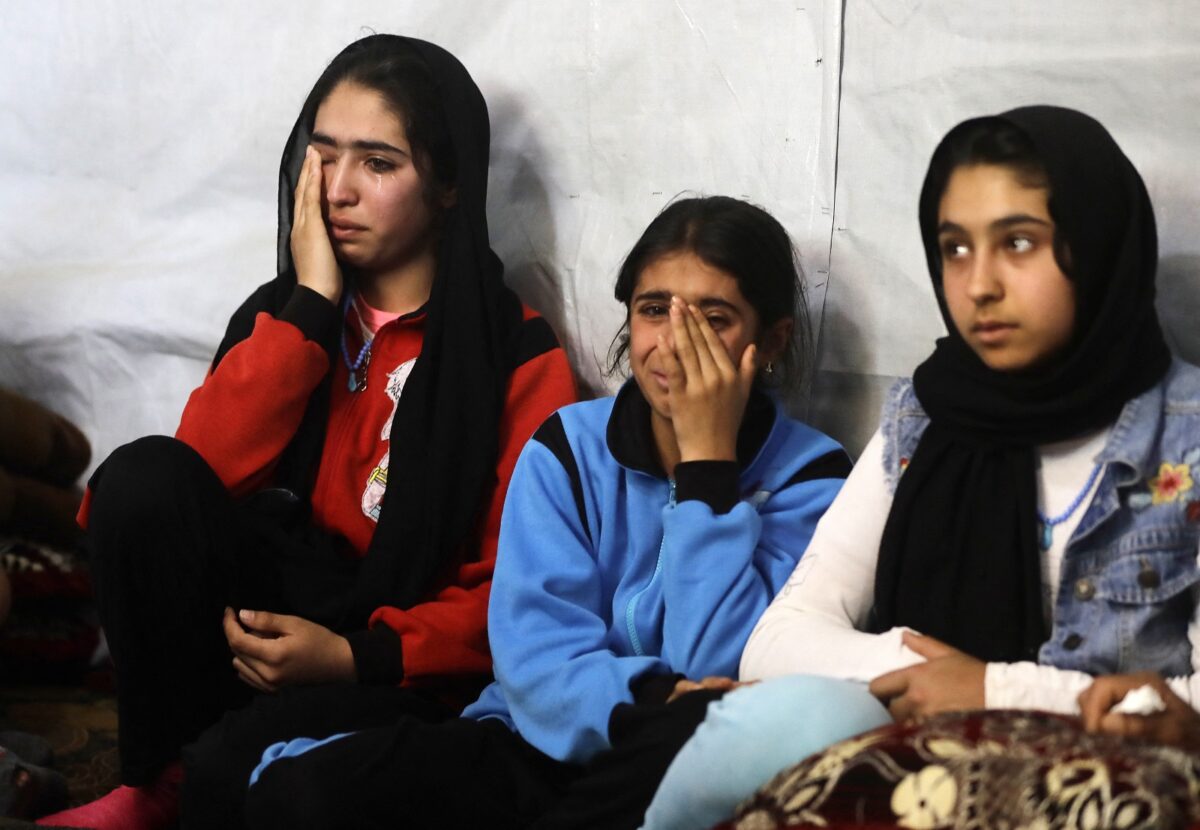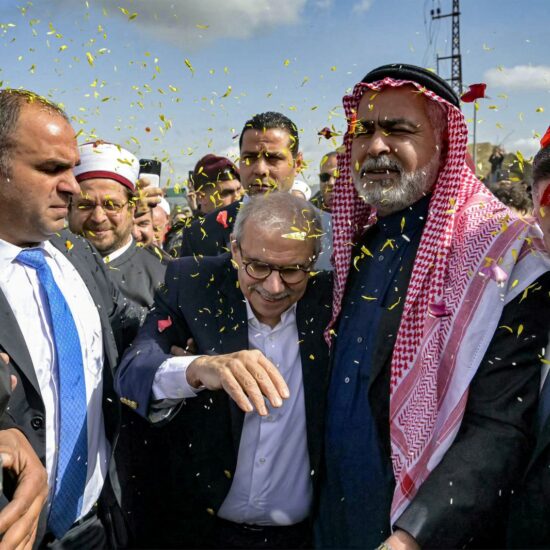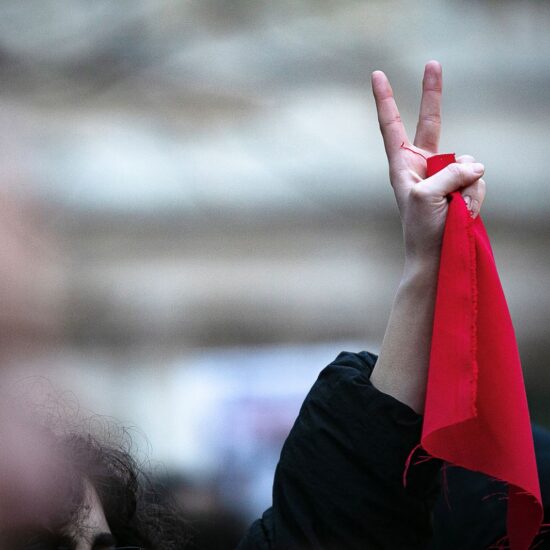
A new directive by Lebanon's Directorate of Technical and Vocational Education, allowing undocumented Syrian students to enroll in schools, has sparked controversy, with critics claiming it encourages illegal presence, threatens Lebanon's identity, and undermines national laws
Layla has always prioritized her education as she dreamt of becoming a lawyer. However, the recent news about Syrian students like her possibly being barred from attending school next year filled her with dread. Layla, a 14-year-old Syrian refugee, had been in Lebanon since she was a little girl, and school had always been her safe haven.
“I’m scared that they’ll tell me I can’t come back next year,” Layla told NOW, her voice trembling. “What if they say I’m not allowed because I don’t have the papers? I don’t know where I would go.”
Layla’s fears weren’t just about missing classes. She had heard whispers in the playground and read about protests on social media. Some of her classmates had started making comments that made her uneasy. “What if they start treating me differently, like I don’t belong here anymore? I just want to study and have a future, like everyone else,” she added. Her future, once filled with hope and dreams of becoming a doctor, now seemed uncertain.
A new directive issued by Dr. Hanadi Berri, the acting Director-General of Vocational and Technical Education, allowing Syrian students without legal residency or identification from the UNHCR to register in Lebanon’s official and private educational institutions for the 2024-2025 academic year, has ignited a significant political and social debate.
The circular, numbered 2024/25, has been criticized for allegedly encouraging the illegal presence of Syrians in Lebanon. Political parties, most notably the Lebanese Forces, have raised concerns over the decision’s broader implications on Lebanese sovereignty, security, and national identity.
Allegations and errors
Opponents of the decision argue that it essentially invites Syrians who reside illegally in Lebanon to remain in the country. Additionally, they claim that it signals to Syrians still residing in Syria that Lebanon provides better opportunities, encouraging further migration to Lebanese schools. Samir Geagea, leader of the Lebanese Forces, has been particularly vocal, framing the directive as a violation of Lebanese law that could exacerbate existing socio-economic pressures.
Geagea further suggested that the move constitutes a “veiled attempt” to permanently settle Syrians in Lebanon, thus threatening the country’s delicate demographic balance and identity. He called on the government to reverse the directive and urged the Ministry of Education to prioritize Lebanese citizens in educational institutions.
In response to the directive, the Lebanese Forces organized protests outside the Directorate-General of Vocational and Technical Education in Dekwaneh, demanding the withdrawal of the circular. Furthermore, the party announced plans to file a legal challenge against the Cabinet’s decision, arguing that it violates Lebanese laws regarding education for foreigners and represents a severe breach of sovereignty.
Critics also highlighted the timing of the decision, noting that it coincided with a broader effort by some factions to tighten the regulations around Syrian refugees in Lebanon. They accused the Ministry of undermining these initiatives, which aim to address illegal residency and reduce the number of undocumented individuals in the country.
Ministry’s defense: Education as a right
In response to the backlash, the Ministry of Education issued a clarifying statement, asserting that it is merely following the government’s broader policy on Syrian refugees. The Ministry emphasized that the directive aims to provide education to children already present in Lebanon and does not directly facilitate new migrations from Syria.
The Ministry also pointed out that Syrian students are educated separately from Lebanese students and that their participation in the education system does not infringe upon Lebanese citizens’ access to schooling. Moreover, the directive ensures that Syrian students who complete their education can be legally monitored by security agencies.
Legal experts have raised concerns that the directive violates Lebanese constitutional law. The country’s education laws stipulate that foreign students must have legal residency to enroll in schools. Furthermore, opponents of the circular argue that it goes against Lebanon’s commitment to regulating refugee presence in the country.
Attorney Malak Hamieh, in a statement to a local news outlet, argued that the decision violates both Lebanon’s constitution and international agreements the country has signed. The controversy underscores the delicate balance Lebanon faces as it navigates a protracted refugee crisis, socio-economic collapse, and the competing interests of its various political factions.
A politicized debate
Manal, a Syrian refugee mother, has been battling numerous challenges to keep her children in school. The issues with securing the right documents have been an ongoing struggle. “In some cases, people can’t even formalize their marriages,” she told NOW. “And the registration fees have become really high. I’m trying to enroll my children in public schools, but the teachers’ strikes are making it even more difficult.”
The cost of securing legal papers, transportation, and daily expenses has become overwhelming for families like hers. “For those who have many children, it’s an extra burden,” Manal noted. “Just for transportation, we’re paying around 20 to 30 dollars per child.”
Manal dismissed the accusations of granting Syrians citizenship that some political figures have been making. “That’s simply not true. The moment Syria becomes safe again, we will return home,” she emphasized.
Discrimination has also played a significant role in the difficulties Syrian students face. “There’s definitely discrimination against Syrian students, especially in schools and universities,” she shared. “Some teachers and administrators look at Syrian students in a demeaning way. But not all are like that; there are others who treat us with respect.”
Manal has noticed that private schools tend to be more accommodating, while public schools often find excuses not to enroll Syrian students. “They always prioritize Lebanese students, even if there’s space in the morning shift. They leave the afternoon classes for Syrians, even though morning shifts are much better for both students and teachers.”
She added that the ongoing teachers’ strikes have significantly impacted the education of all students. “The strikes are really affecting the quality of education,” Manal said, frustration clear in her voice.
Now she’s facing a new challenge of not having schools accept her children due to the Ministry’s decision, so she remains in a state of confusion until further notice.
A new government order issued a few days ago strictly prohibits the admission of any Syrian student who entered Lebanon after 2015 into schools, unless they provide valid, non-expired documentation.
Despite the Ministry’s reassurances, the debate continues to escalate, with political and civil society actors on both sides of the issue weighing in. The outcome of the legal challenges and ongoing protests remains uncertain, but the controversy has once again brought the complex issue of Syrian refugees in Lebanon to the forefront of public discourse.
As Lebanon grapples with a deepening economic crisis, the Syrian refugee issue continues to polarize the country’s political landscape. The directive allowing Syrian students without legal residency to enroll in Lebanese schools has only added fuel to the fire, with parties like the Lebanese Forces viewing it as a step toward settling Syrians permanently in Lebanon. Meanwhile, others argue that education should remain a right for all children, regardless of their nationality or legal status.
The coming weeks will likely see continued protests and legal challenges, as Lebanon searches for a solution that balances the rights of refugees with the need to preserve the country’s fragile stability.








